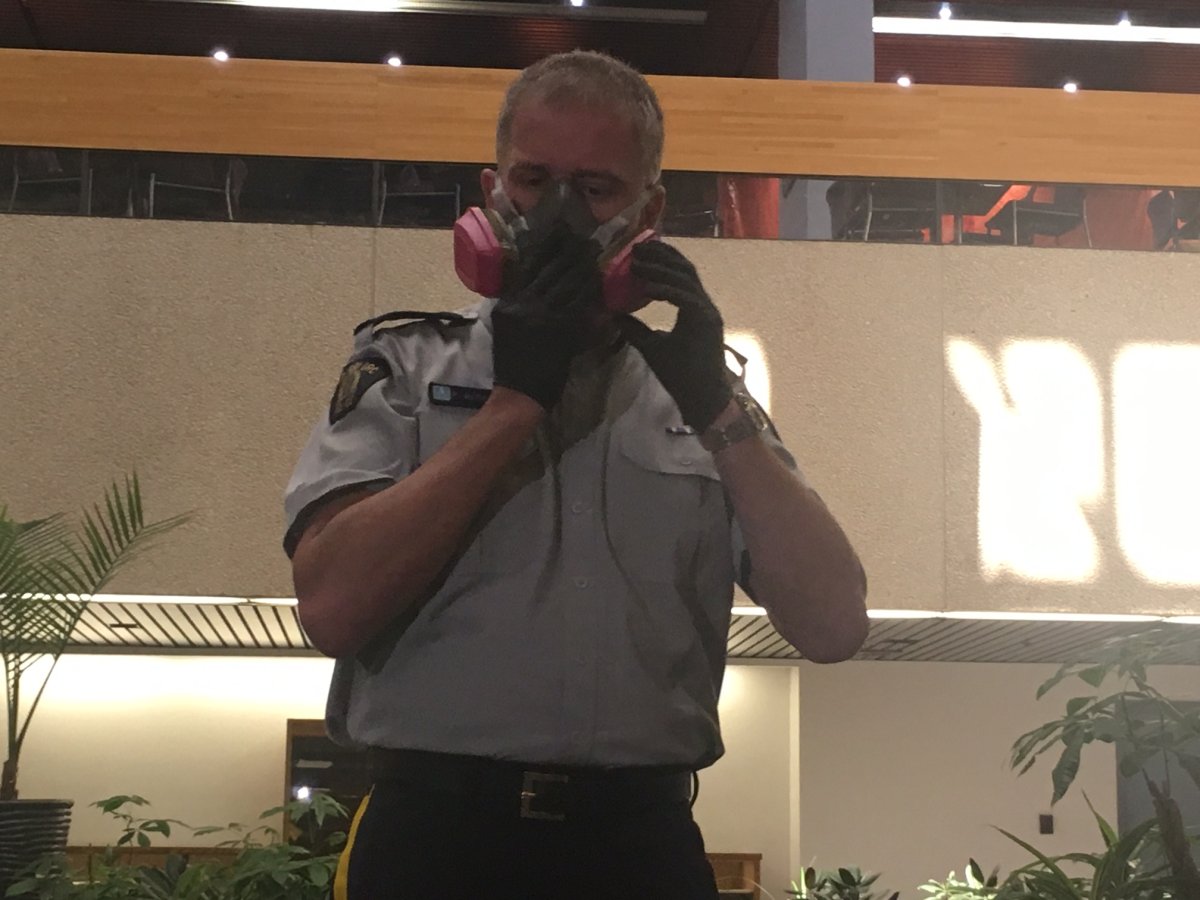The provincial government is pitching in to help protect front-line RCMP officers from fentanyl.

Nearly $54,000 from the criminal property forfeiture fund will be spent on personal protective equipment. That includes respiratory masks, eye wear and secure containers.
RELATED: 3 Winnipeg police officers possibly exposed to fentanyl, self-administer naloxone
Any kind of exposure to fentanyl can trigger an overdose. It can be ingested through the skin, so an officer may have no idea they have taken in the substance until it’s too late. This protective equipment will help make sure that doesn’t happen.
“An officer on the street and on the front-line can run into a scenario whereby they could be arresting somebody and there could be substances there,” explained Scott Kolody, Commanding Officer of RCMP D Division. “Today, it’s just very difficult to detect exactly what it is until further analysis is being done.”
RELATED: Being on fentanyl is like ‘hell on earth’, says former addict from Winnipeg
Roughly a third of the 1,080 officers in Manitoba have already been equipped with the protective gear. The rest will be fitted by year’s end.
“The funding will also help ensure that officers working in remote detachments have access to this respiratory equipment,” said Justice Minister Heather Stefanson.
Stefanson hinted that a similar announcement about equipping Winnipeg police officers would be coming soon.
In Winnipeg, first responders are set to administer more naloxone this year than ever before. Naloxone is the antidote that can counteract the effects of an opioid overdose.
RELATED: ‘It’s definitely a concern’: Postal workers on high alert over fentanyl risks
Through the first seven months of 2017, just over 500 patients received it. 727 got the drug in all of 2016.
Virtually all RCMP officers have been trained to administer the antidote and carry it with them in the field.
- Posters promoting ‘Steal From Loblaws Day’ are circulating. How did we get here?
- Video shows Ontario police sharing Trudeau’s location with protester, investigation launched
- Canadian food banks are on the brink: ‘This is not a sustainable situation’
- Solar eclipse eye damage: More than 160 cases reported in Ontario, Quebec





Comments